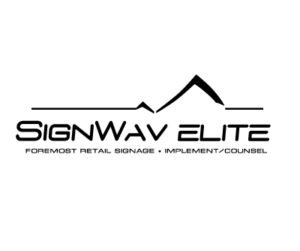As water scarcity and resource management become increasingly important issues worldwide, businesses are under pressure to adopt more sustainable practices while simultaneously catering to the growing demands of employees and customers.
One area of focus in addressing these concerns is the integration of efficient water tank systems into modern commercial construction projects.
By utilizing water storage solutions designed with efficiency and sustainability as top priorities, firms can not only minimize their impact on the environment but also save money on utility costs for years to come.
An Overview of Water Tank Systems: Identifying Your Specific Needs
Before delving into specific types and models of water tanks, you’ll first want to identify the needs and constraints unique to your commercial property. This includes considering factors such as site layout, local climate conditions, access to existing water sources, desired capacity for water storage tanks, and anticipated usage patterns.
To accurately assess your requirements, begin by determining the building’s daily water consumption levels for different purposes (e.g., drinking water provision, irrigation or landscaping maintenance), while also taking into account any seasonal fluctuations.
Next, consider the pros and cons associated with various materials used in tank construction (such as steel or concrete) from both a practicality and financial standpoint. Finally, evaluate any legal or regulatory restrictions that may apply within your jurisdiction when selecting an appropriate solution.
Efficient Water Tank Options: Evaluating Which System Best Suits Your Project Needs
There are several categories of water tank systems available, each designed to address different needs and requirements depending on the type of construction involved. Some popular options include:
Rainwater Harvesting Systems
Rainwater harvesting systems collect and store rainwater that falls on roofs or other catchment areas for later use in irrigation, flushing toilets or even treatment for potable use.
These systems can significantly reduce a building’s dependency on municipal water supplies, save money on utility bills and contribute to stormwater management efforts.
Greywater Recycling Systems
Gathered from sources such as sinks, showers and washing machines, greywater represents a large portion of a commercial property’s wastewater discharge.
By installing a greywater recycling system, this relatively clean wastewater can be filtered and treated for reuse in non-potable applications like toilet flushing or irrigation—resulting in tangible water savings.
Cooling Tower Recycling
Cooling towers are significant consumers of water within commercial properties due to their role in HVAC systems. By capturing blowdown water from cooling towers and treating it for reuse instead of allowing it to discharge as waste, facilities can significantly reduce both their overall water consumption and associated costs.
Implementing Efficiency-Driven Design Features
When incorporating an efficient water tank system into your commercial construction project, there are several design considerations that can optimize performance and maximize benefits:
1. Optimal Sizing of Tanks
In determining the appropriate size for your homepage storage tanks, aim to strike a balance between capacity (the volume required to hold captured water) versus demand (anticipated usage patterns).
An oversized tank may result in wasted resources during construction while an undersized one may not provide adequate backup during periods of peak usage or droughts.
2. Strategic Tank Placement
Ensure that storage tanks are strategically placed within your building’s design to allow easy access for equipment, minimize chances of leakage or damage and optimize system functionality based on anticipated consumption patterns.
3. Integration with Building Automation Systems (BAS)
Conventional water supply systems can be combined with modern-day technologies, such as Building Automation Systems (BAS), which offer increased efficiency through central management of all building systems—including HVAC, lighting, security and more.
Integrating a water tank system into the BAS allows for real-time monitoring of performance metrics and proactive management of water usage, supporting ongoing efficiency improvements.
Incorporating Innovative and Sustainable Technologies into Water Tank System Designs
The use of innovative materials and production methods is crucial in achieving greater efficiencies in commercial water tank systems.
1. Advanced Materials & Durable Manufacturing Processes
Companies like The Water Tank Factory offer a range of efficient tank models that incorporate advanced materials, such as polyethylene, which resist corrosion and deterioration over time, providing long-lasting durability with minimal maintenance requirements. Additionally, the flexibility of these materials allows for customized designs that cater to unique property constraints.
2. Energy-Efficient Treatment Systems
In tandem with advanced storage solutions, energy-efficient treatment systems can be incorporated to ensure optimized performance and cost-effectiveness throughout the life cycle of a commercial property.
These advanced technologies involve lower energy consumption during wastewater processing as compared to conventional processes, reducing greenhouse gas emissions while improving overall resource efficiency.
Conclusion
Efficient water tank systems in commercial construction are essential due to growing water scarcity issues. By choosing suitable systems, optimizing design, and using advanced technology, businesses can improve resource efficiency, save money, and promote better water stewardship, contributing to a sustainable future.












 The 2024 virtual Men’s Round Table will be held Q4, 2024, date TBD.
The 2024 virtual Men’s Round Table will be held Q4, 2024, date TBD.













